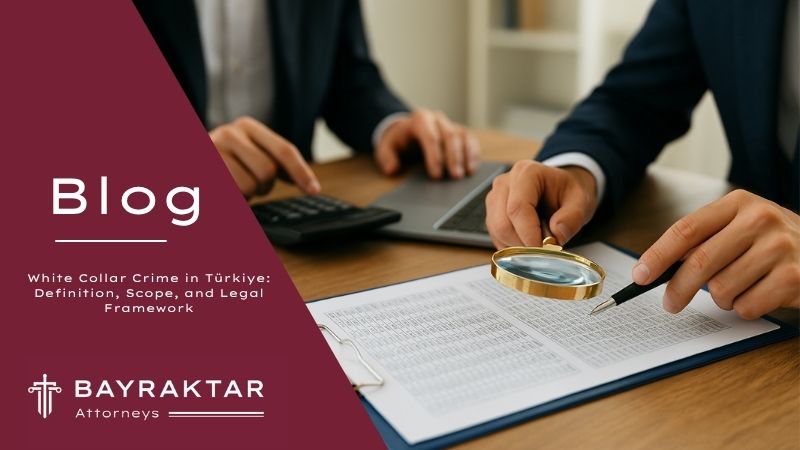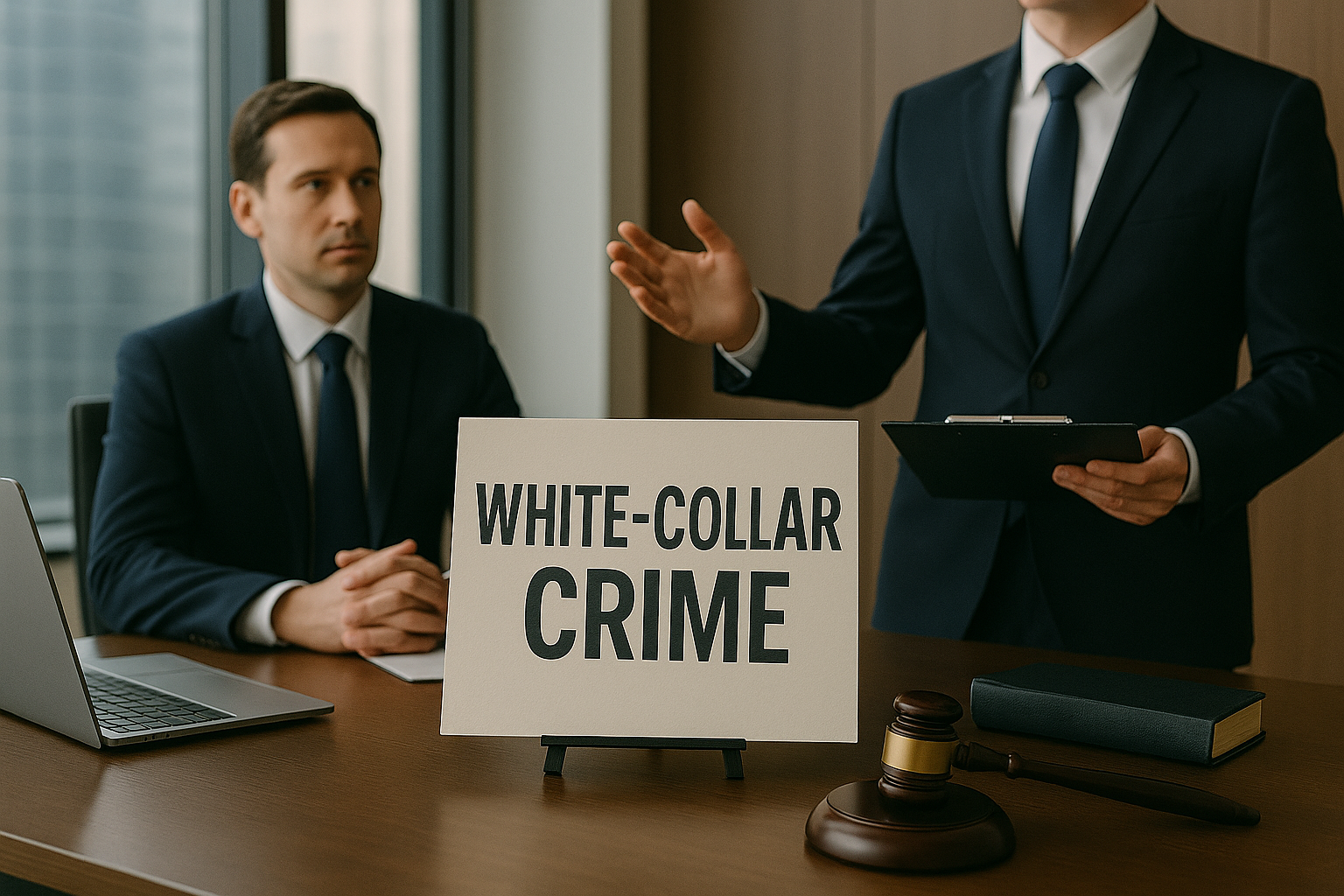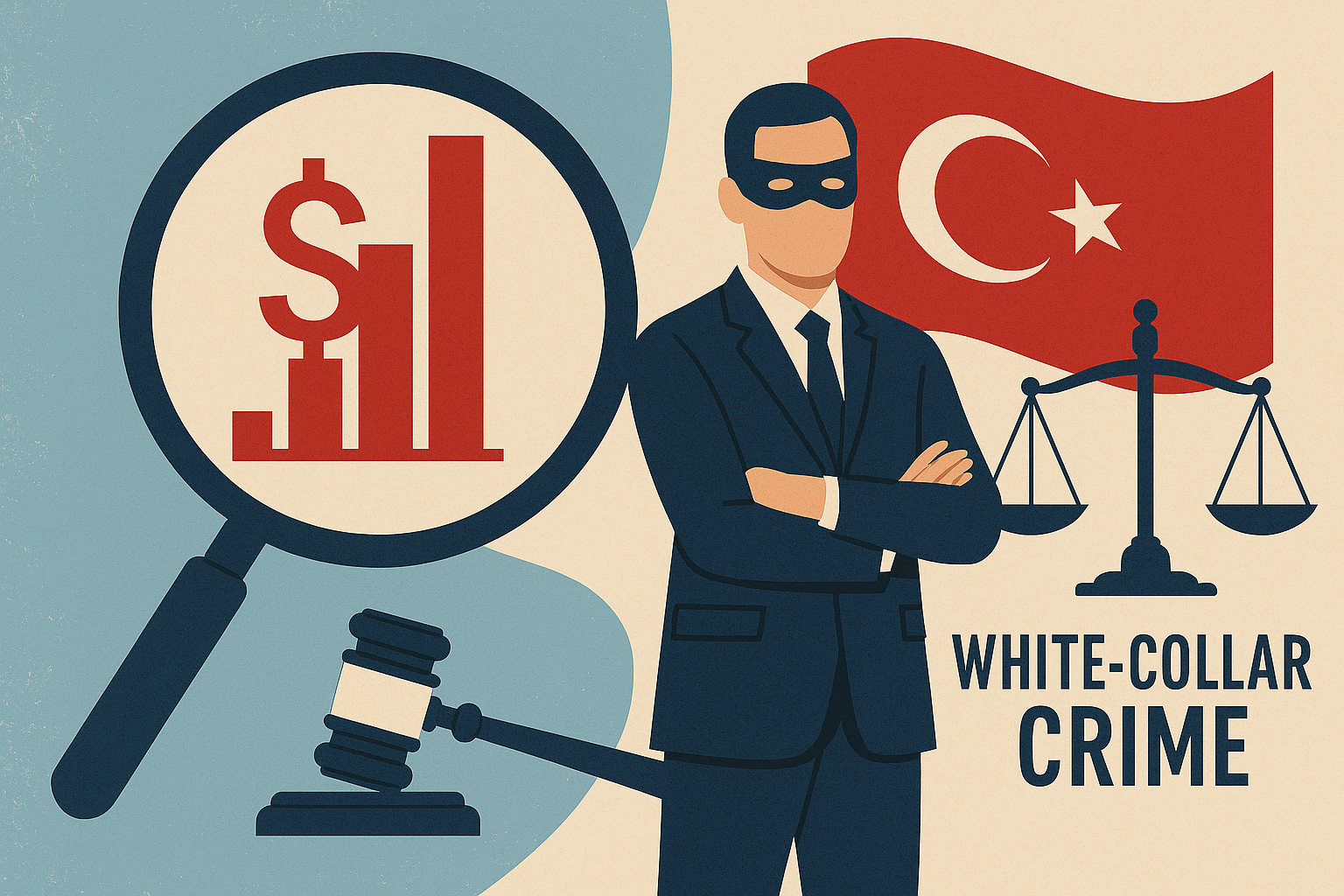
White-collar crimes have increasingly drawn public attention in recent years, challenging the traditional image of who can be considered “guilty.” Once associated mainly with street crime, criminal behavior today is also found among people with high professional and social standing.
With the rapid development of trade, finance, and technology, legal systems have introduced a growing number of rules governing commercial life. However, where there is a rule, there is also the potential for violation. White-collar crimes embody this principle and represent some of the most complex offenses in modern law.
Why White Collar Crime Matters
The concept of white-collar crime was introduced by sociologist Edwin H. Sutherland, who defined it as crimes committed by individuals of high social status and respectability during the course of their professional activities, in violation of the trust placed in them.
Sutherland revolutionized criminology by demonstrating that crime is not limited to poverty or low socioeconomic classes. He showed that highly educated professionals, executives, and respected figures could also commit serious crimes, often with far-reaching economic consequences.
While such crimes were historically under-prosecuted and rarely reflected in official crime statistics, modern research and enforcement reveal that white-collar crimes now cause greater financial harm than most conventional crimes. Their effects are not limited to individual victims but often extend to companies, investors, and the broader economy.
Common Sectors Where White Collar Crimes Occur
White-collar crime can occur in any field where trust and responsibility are delegated, but it is particularly common in sectors involving large financial flows and complex operations.
According to various studies and reports, the energy, telecommunications, transportation, and warehousing sectors experience the highest rates of financial misconduct. Within companies, the departments most often associated with corruption include procurement, senior management, and operations.
The common element across these areas is the opportunity for individuals to manipulate financial data, misuse authority, or distort reporting systems without immediate detection.

How White Collar Crimes Are Committed
White-collar crimes are often committed through deception, secrecy, and manipulation of information. Offenders typically operate within legitimate organizations, using their authority and technical knowledge to conceal wrongdoing.
Typical features include:
Destruction or falsification of financial records,
Manipulation of accounting data and invoices,
Fabrication of company expenses or assets,
Concealment of financial losses, and
Psychological pressure or intimidation of employees to deter whistleblowing.
Detection usually occurs through audits, forensic accounting, or whistleblower reports. Auditors identify irregularities by analyzing deviations from standard accounting practices, unusual transactions, or inconsistencies in control mechanisms.
White Collar Crime in Turkish Law
In Türkiye, there is no single statute specifically regulating white-collar crimes, but various provisions of the Turkish Criminal Code (TCK) and related legislation apply. The following offenses often fall within this scope:
Bribery and corruption(TCK Arts. 252-254)
Fraud and aggravated fraud(TCK Arts. 157-158)
Money laundering(Law No. 5549)
Forgery of documents(TCK Art. 204)
Smuggling and tax evasion
Capital markets crimes(Law No. 6362)
Bid rigging and irregularities in public tenders
Abuse of trade secrets or insider information
Tax irregularities and the unlawful use of company information for personal gain are also common white-collar offenses. While some tax violations are subject to administrative fines, aggravated forms such as tax evasion and false documentation are punishable by imprisonment.
The Role of the ACFE (Association of Certified Fraud Examiners)
The Association of Certified Fraud Examiners (ACFE), founded in 1988, is the world’s largest professional organization for detecting and preventing corporate fraud.
According to ACFE’s global reports, businesses lose an average of five percent of their annual revenues to fraud. The 2008-2012 reports revealed that the most common types of corporate fraud were:
Type of Fraud | Frequency (2008) | Frequency (2010) | Frequency (2012) | Average Loss (2008) | Average Loss (2010) | Average Loss (2012) |
|---|---|---|---|---|---|---|
Misappropriation of assets | 88.7% | 86.3% | 86.7% | $150,000 | $135,000 | $120,000 |
Abuse of authority | 26.9% | 32.8% | 33.4% | $375,000 | $250,000 | $250,000 |
Financial statement fraud | 10.3% | 4.8% | 7.6% | $2,000,000 | $4,100,000 | $1,000,000 |
These findings emphasize that financial statement fraud, while less frequent, causes the greatest financial losses, showing how manipulation by top executives can devastate organizations and economies.
The Enron Case: A Landmark in Corporate Fraud
One of the most famous examples of white-collar crime is the Enron scandal in the United States. Enron grew from a small company to one of the largest corporations in the world, employing more than 20,000 people. Behind its success, however, senior executives were concealing billions of dollars in debt through accounting loopholes and off-balance-sheet entities.
Key misconducts included:
Manipulating the Texas energy market,
Bribing foreign officials to secure contracts, and
Distorting the California energy market to increase profits.
In 2001, journalist Bethany McLean questioned the company’s inflated valuation, prompting an investigation by the U.S. Securities and Exchange Commission (SEC). The inquiry revealed large-scale fraud, and both Enron and its auditing firm Arthur Andersen collapsed in one of the largest corporate bankruptcies in history.
The case redefined the global understanding of corporate crime and led to the creation of the Sarbanes-Oxley Act (SOX), which introduced stricter auditing and disclosure rules for public companies.
Current Approach and Challenges in Türkiye
In Türkiye, white-collar crimes are handled under the general framework of the Criminal Code, without a specialized statute. However, these crimes are often more complex than traditional offenses. They are usually committed by professionals who understand legal and procedural loopholes, and the perpetrators take extensive measures to hide evidence.
Investigations require financial expertise, coordination between the judiciary and administrative institutions, and a thorough understanding of corporate governance principles.
For this reason, preventive measures such as internal control systems, compliance programs, and corporate audits are essential. Companies are encouraged to adopt fraud risk management policies, conduct periodic internal audits, and implement whistleblower protection mechanisms to minimize exposure.

Conclusion
White-collar crime undermines trust in financial markets, damages reputations, and causes large-scale economic losses. Unlike conventional crimes, these offenses are often hidden behind complex documentation and professional hierarchies.
Although Turkish law does not yet provide a single framework for white-collar crimes, the combined application of the Turkish Criminal Code, Banking Law, Tax Law, and Capital Markets Law allows effective prosecution of financial misconduct.
The most effective deterrent remains prevention through corporate ethics and accountability. Businesses must ensure that transparency, compliance, and internal auditing are integral to their corporate culture.
Bayraktar Attorneys Can Assist You
At Bayraktar Attorneys, we advise both domestic and international clients on financial crime investigations, anti-corruption compliance, and corporate ethics programs. Our lawyers provide representation in:
Fraud, embezzlement, and corruption cases,
Investigations involving tax and banking crimes,
Capital markets and insider trading disputes, and
Designing and implementing compliance frameworks for multinational corporations.
Our team combines legal, financial, and regulatory expertise to help clients navigate complex investigations, cooperate with authorities, and safeguard their commercial reputation.
📞 Contact us: [email protected] | www.bayraktarattys.com
📍 Kolektif House Levent, Talatpaşa Cd. No: 5/1, 34394 Şişli / İstanbul, Türkiye
Recently Added Blogs



.png)
.png)
.png)
.png)
